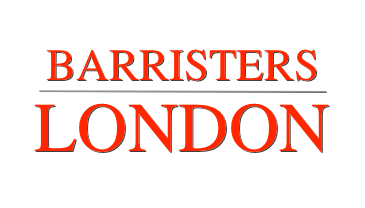PROFESSIONAL STANDARDS AUTHORITY v (1) GENERAL MEDICAL COUNCIL AND (2) HILTON [2019] EWHC 1638 – Case Digest
Law Report: PROFESSIONAL STANDARDS AUTHORITY v (1) GENERAL MEDICAL COUNCIL AND (2) HILTON [2019] EWHC 1638
Case Law Digested by Barrister Penny Maudsley
No impairment following a finding of dishonesty. Appropriate and necessary to issue a warning.
Dr H was an orthopaedic surgeon. He performed a spinal fusion operation on Patient A. Following surgery, Patient A experienced ongoing pain so sought a second opinion. Corrective surgery was undertaken.
Patient A made a complaint to Dr H and at a subsequent meeting, Dr H dishonestly informed Patient A post- operatively, he was aware that a screw had been misplaced. He was adopting a ‘watch and wait’ approach so as not to worry Patient A. It was untrue that Dr H had known about the misplaced screw post-operatively.
At a fitness to practise hearing before the Medical Practitioner’s Tribunal, Dr H was found to have been dishonest and misconduct was found proved. However, the Tribunal made no finding of impairment and did not issue a warning.
On appeal, Freedman J dismissed the appeal on impairment but allowed the appeal on the warning.
The learned Judge [118] recognised that there was need to defer to the expertise of the Tribunal in these cases, Khan v General Pharmaceutical Council [2017] 1 WLR 169, Bawa-Garba v General Medical Council v GMC [2018] EWCA 1879 and GMC v Raychaudhuri [2019] 1 WLR, see also: Professional Standards Authority v (1) GMC (2) Uppal [2015] EWHC 1304 ( Admin). At [119] he noted that ‘the specialist Tribunal is particularly well equipped to consider what does and what does not constitute impairment.’
The ultimate question [117] involved a question, either the decision which was made was on a false basis or that no reasonable Tribunal could come to a decision other than one of impairment.
The learned Judge, like the Tribunal, noted that it was an ‘exceptional case, it was an isolated lapse in an otherwise unblemished career. The risk of repetition was extremely low. The testimonials of colleagues and patients all told a story. The Tribunal had well in mind that the central issue and the crux of the matter was the upholding of professional standards. The matters of impression which it reached about the lies were not such as to undermine the very basis of the decision. Further, the decision reached on impairment was not one which no reasonable Tribunal could reach.’
The learned Judge, however, did not find the decision not to issue a warning as justified.
‘The central question [121] at this stage of the analysis is whether a decision not to warn was sufficient in respect of the second purpose, namely to highlight to the wider profession and the public that dishonesty, here in a clinical context, was conduct or behaviour which was unacceptable.’
Coming to the same conclusion as that in Uppal, the learned Judge stated, [131] ‘this was a case where a warning was appropriate and necessary because the respondent was in clear breach of Good Medical Practice. In this case the respondent lied to a patient about the steps he took in considering his case and about his determination of how to treat the patient.’
The learned Judge therefore concluded that it was wrong to take the view that the public confidence in the profession would not be undermined by a finding that there should be no sanction for the dishonesty, neither impairment nor a warning. There may be in circumstances where it is necessary not to tell the truth, but these would be extreme, there were no extenuating circumstances in this case.
Even allowing for the diffidence and the appreciable advantages the Tribunal had over the court, the learned Judge was satisfied in all the circumstances that the decision reached by the Tribunal not to issue a warning was wrong and one which was not available to a Tribunal properly applying the law to the instant facts.
If you are a professional dealing with a professional conduct or fitness to practise allegation, contact Barristers.London without obligation and in strict confidence to see how we might be able assist you and to discuss the potential costs of such work.
Back to Our Case Digests Page

Request a
Enquiries
